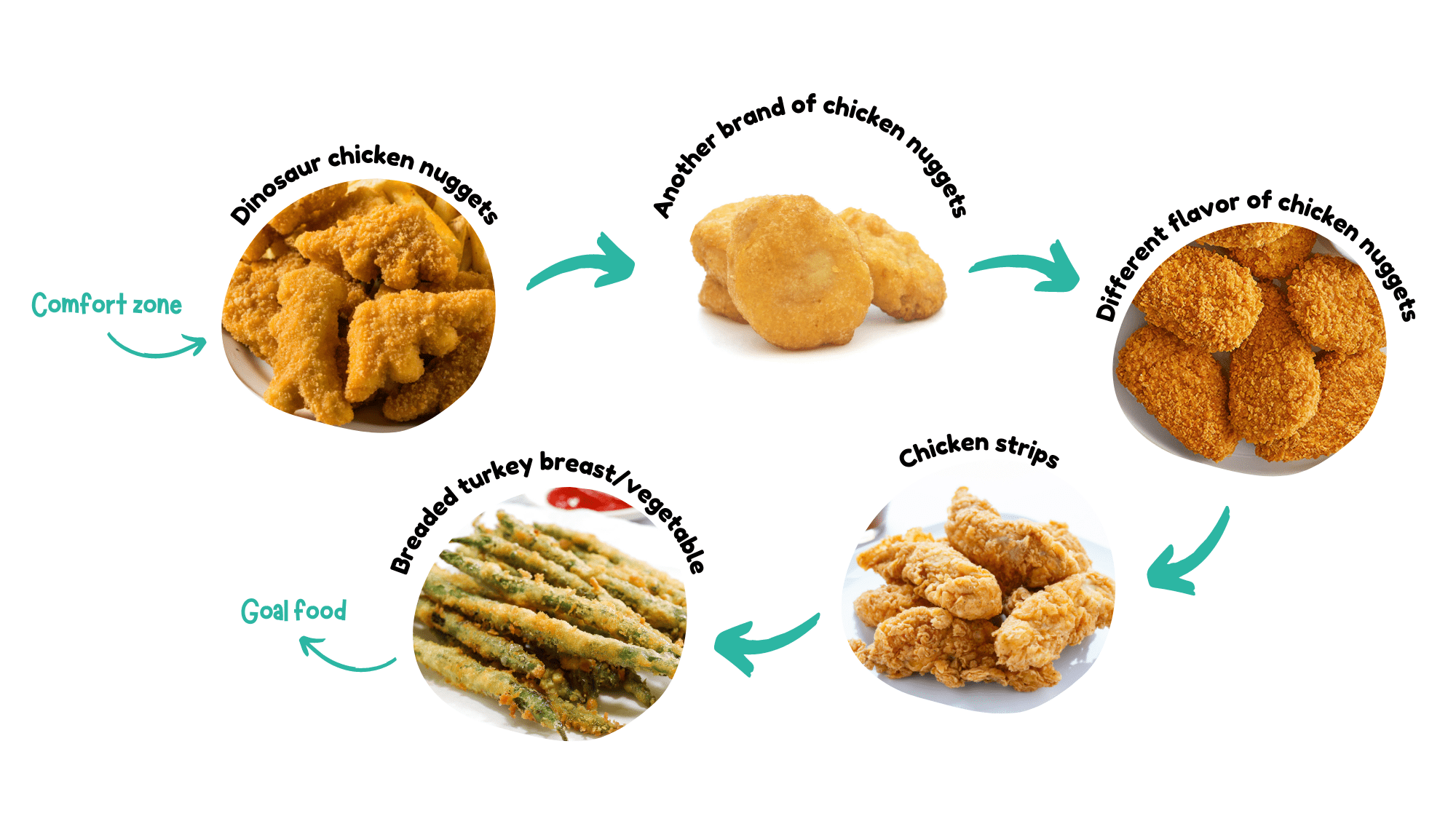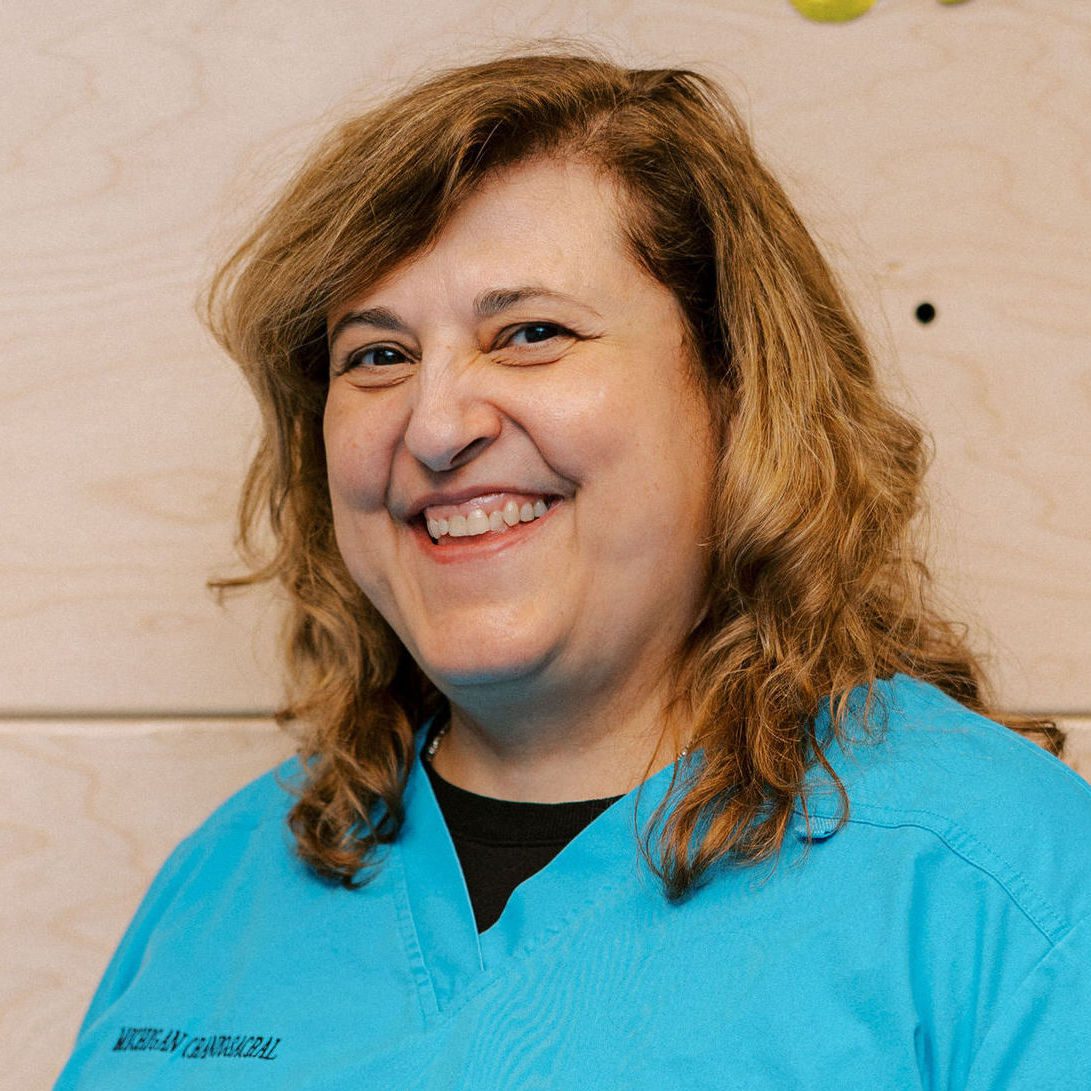“The toddler age is characterized by a constant recording of “No.” Sometimes the constant “no” makes us feel like we’re going insane. But nowhere is it more vexing than hearing “no” at meal times. No to veggies. No to chicken. No pasta. You get the idea. Ugh! As parents, we’re left in complete frustration and worry. We wonder how we’re going to get the right nutrients into our child. Grandma tries. Grandpa tries. The toddler wins with screaming and crying while our heads pound. Does this sound like you?

Toddlers go through a normal stage of development called neophobia. In this stage, a toddler will reject foods for no particular reason or pattern. As adults, we take this refusal as preference, but it is a real stage of development. The rule of thumb is to offer a food item to your child at least 10 times. This gives your child the ability to distinguish taste and develop true likes and dislikes. Also, give your child the chance to play with food. Present them with frozen foods such as green beans, corn or peas, and then move to items such as cheese sticks, celery or carrots. Activities with pudding and yogurt are also fun! For most children, if they can play with food then they can accept food.”1
Another strategy for presenting a new food to a picky eater is called food chaining. Food chaining is a child-friendly treatment approach that helps introduce new foods while building upon the child’s past successful eating experiences. In this process, the child is presented with new foods that may be similar in taste, color, or texture to food that the child already likes and accepts. These similar foods are used to create the “food chains” or links between the foods a child already accepts and the new, targeted food that we would like the child to eat.

Where can I find a therapist that is trained in food chaining?
“Picky eating can be helped. There is a solution; it doesn’t have to be a lifetime of struggles. Start by talking to your doctor. If warranted, see a therapist. Trust your gut instinct as a parent. The person who knows your child the best is you. Know that we are there to help you if you need us.”1 Michigan Pediatric Therapy has occupational therapists that are trained in the food chaining process and treatment approach. Please contact us if you have any additional questions regarding food chaining.
1The eating struggle. Girao, Magda. Beaumont Parenting Program, Aug. 18, 2016. <https://beaumontparenting.wordpress.com/2016/08/18/the-eating-struggle/>

Magda Girao, OTRL, CST-D, NDT, Founder
Magda has more than 20 years of experience as a licensed occupational therapist. Magda has a Diplomate (advanced) certification in craniosacral therapy through the Upledger Institute. She is certified in neurodevelopmental techniques, is an expert in the treatment of children with breastfeeding and other feeding issues, and is certified in therapeutic listening. Magda has extensive training in feeding issues and is trained in tethered oral tissues, SOS Approach, Beckman Protocol, Talk Tools, Nomas, mealtime misery, and AFRID.



